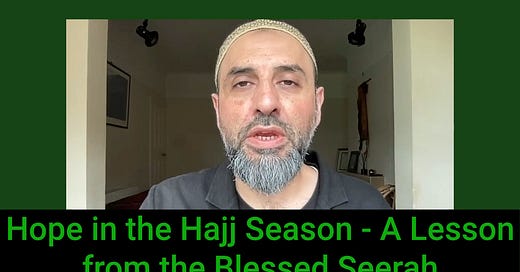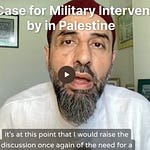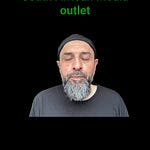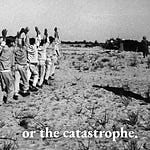Hope in the Hajj Season - A Lesson from the Blessed Seerah - Before the Hijrah, in the Hajj season, the Prophet (صلى الله عليه و سلم) had the pledge of help and victory at a time when things looked very difficult. Yet behind the scenes things were happening. This should be a lesson for us today - that when things look bleak, Allah can bring His Help & Victory in a way unbeknown most people in the world.
In the first 13 years of the Prophet’s (صلى الله عليه و سلم) mission in Makkah, he and his companions faced slander, physical abuse, torture and were even assassinated. Some were forced to flee to Abyssinia. The entire tribe of Banu Hashim was collectively punished even though most were non-Muslim, because they refused to partake in the persecution of the Muslims. They boycotted and starved.
In the worst moment, the Prophet (صلى الله عليه و سلم) went to the town of Ta’if and was abused by its people.
Bukhari and Muslim relate that 'Aishah (ra) reported:
I asked the Prophet, ﷺ “Have you ever experienced a day harder than the day of the battle of Uhud?" He replied, "Indeed, I experienced them (dangers) at the hands of your people (i.e., the disbelievers from amongst the Quraish tribe). The hardest treatment I met from them was on the Day of 'Aqabah when I went to Ibn 'Abd Yalil bin 'Abd Kulal (who was one of the chiefs of Ta'if) with the purpose of inviting him to Islam, but he made no response (to my call). So I departed with deep distress.”
Ibn Kathir relates from Musa bin ‘Uqba:
“The people of Ta’if positioned themselves in two lines along his path and as he passed by every time he raised and put down his foot they threw stones at it until his feet began to bleed. His feet streaming with blood, he withdrew and made his way beneath the shade of a palm tree, completely overcome.”
This is how bad things were.
For some years the Prophet (صلى الله عليه و سلم) approached the tribes of Arabia, seeking support.
Tirmidhi relates from Jabir ibn Abdullah that:
The Prophet ﷺ use to present himself during the season of Hajj as the Tribes of Arabia would be coming into Makkah, and would say, “Is there not a man who will take me to his people? for indeed the Quraish have prevented me to convey the Speech of my Lord (Allah).”
In Dala’il al Nubuwah Imam Baihaqi’ says:
Ali ibn Abi Talib, may Allah be pleased with him, said:
"When Allah, the Blessed and Exalted, commanded His Messenger, peace and blessings be upon him and his family, to present himself to the Arab tribes, he went out, and I was with him, along with Abu Bakr, may Allah be pleased with him. So, we were directed to a gathering among the Arab tribes. Abu Bakr, may Allah be pleased with him, advanced, and he was always at the forefront in goodness, and he was a man of nobility..."
Then the Prophet (صلى الله عليه و سلم) was approached by the people of Yathrib. First by twelve - and then one year later, in the Hajj season in the 13th year of the mission, just three months before the Hijrah, by 73 men and 2 women.
Ibn Ishaq said, on the authority of Ma’bad, on the authority of Abdullah, on the authority of his father Ka’b bin Malik, who said:
“We slept that night with our people in our tents, until a third of the night had passed. We then left our tents to meet the Messenger of Allah (صلى الله عليه و سلم). We crept like sandgrouse, stealthily, until we gathered in the valley near the pass. We were seventy-three men, and with us were two of our women.” The women were Nusaybah bint Ka’b, Umm ‘Amara al-Maziniyyah, and Asma bint ‘Amr bin ‘Adi from Banu Salamah, who was Umm Mani’.
Ka’b ibn Malik said:
‘When we gathered in the ravine, we were waiting for the Messenger of Allah (saw) until he came to us with Al-Abbas ibn Abdul Muttalib, who was still following the Deen of his people at that time, except that he wanted to be present about his nephew and provide him with security. When he sat down, the first to speak was Al-Abbas ibn Abdul Muttalib, who said, يا معشر الخزرج، إن محمداً منا حيث قد علمتم، وقد منعناه من قومنا ممن هو على مثل رأينا فيه، فهو في عزة من قومه، ومنعة في بلده، وإنه أبى إلا الانحياز إليكم واللحوق بكم، فإن كنتم ترون أنكم وافون له بما دعوتموه إليه، ومانعوه ممن خالفه، فأنتم وما تحملتم من ذلك وإن كنتم ترون أنكم مسلموه وخاذلوه بعد الخروج إليكم فمن الآن فدعوه. فإنه في عزة ومنعة من قومه وبلده “O people of Khazraj, Muhammad (saw) is one of us as you know, and we have protected him as amongst our people, amongst those who share the same opinion as we do about him. He (saw) is honored by his people and protected in his land. He has rejected that only to side with you and join you. If you think that you will fulfill what you have called him to, and protect him from those who oppose him, then you are responsible for what you have borne of that. However, if you think that you will surrender him and abandon him, after he has come out to you, then from now leave him alone, for he is honored and safe from his people and land.”’
So we said to him, “We have heard what you said, so speak, O Messenger of Allah (صلى الله عليه و سلم) and take for yourself and your Lord whatever you like.”
So the Messenger of Allah (صلى الله عليه و سلم) spoke, recited the Qur'an, called to Allah, and encouraged people to Islam. He then said, «أُبَايِعُكُمْ عَلَى أَنْ تَمْنَعُونِي مِمَّا تَمْنَعُونَ مِنْهُ نِسَاءَكُمْ وَأَبْنَاءَكُمْ»“I pledge Bayah upon you that you will protect me from what you protect your women and children.”
Al-Bayhaqi narrated that Ubadah ibn al-Samit said:
«إنا بايعنا رسول الله صلى الله عليه وسلم على السمع والطاعة في النشاط والكسل، والنفقة في العسر واليسر، وعلى الأمر بالمعروف والنهي عن المنكر، وعلى أن نقول في الله لا تأخذنا فيه لومة لائم، وعلى أن ننصر رسول الله صلى الله عليه وسلم إذا قدم علينا يثرب مما نمنع به أنفسنا وأزواجنا وأبناءنا ولنا الجنة»
“We have pledged Bayah to the Messenger of Allah (صلى الله عليه و سلم) to hear and obey in times of activity and inactivity, to spend in times of hardship and ease, to enjoin what is right and forbid what is wrong, to speak about Allah without fear of blame from anyone, and to support the Messenger of Allah ﷺ, when he comes to us in Yathrib, in a way that will protect us, our wives and our children, and Paradise will be ours.”
Less than three months after this, as Quraish sought to assasinate the Messenger of Allah (صلى الله عليه و سلم), Allah gave him victory as he rode in to Madinah -secure and to be obey, with an armed escort of the Ansar in full military gear.
Out of nowhere - Allah brought His Help and Victory
Abdul Wahid has been active in Muslim affairs in the UK for over 25 years. He has been published on the websites of Foreign Policy, Open Democracy, the Times Higher Educational Supplement, and Prospect Magazine. You can follow him on X/Twitter @AbdulWahid_X.












Share this post